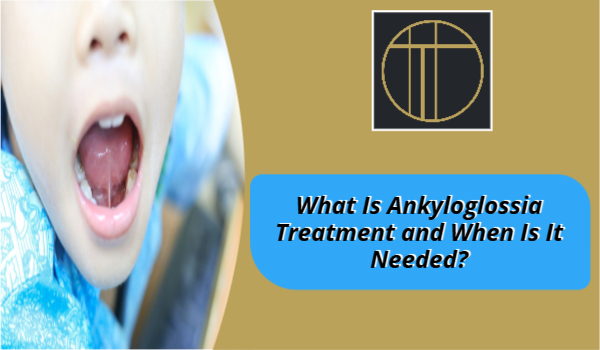
Ankyloglossia, often referred to as tongue-tie, is a condition where the lingual frenulum, the tissue connecting the underside of the tongue to the floor of the mouth, is too short or tight. This can restrict tongue movement, impacting speech, feeding, and oral hygiene.
Understanding Ankyloglossia
Ankyloglossia can vary in severity, from mild to severe. In mild cases, the tongue may only have limited movement, while in severe cases, the tongue may be completely restricted.
Symptoms of Ankyloglossia
The symptoms of ankyloglossia can vary depending on the severity of the condition. Some common symptoms include:
- Difficulty breastfeeding
- Speech difficulties
- Poor oral hygiene
- Clicking sounds when eating or speaking
- Difficulty licking lips
- Heart-shaped tongue
When Is Ankyloglossia Treatment Needed?
Not all cases of ankyloglossia require treatment. However, if the condition is causing significant problems with feeding, speech, or oral hygiene, treatment may be recommended.
Ankyloglossia Treatment Options
There are two primary treatment options for ankyloglossia:
- Frenectomy
A frenectomy is a minor surgical procedure to release the tight lingual frenulum. It is a quick and relatively painless procedure that can be performed in a dental office or a hospital setting.
The Procedure
During a frenectomy, a small incision is made in the lingual frenulum to release the tension. The procedure is typically performed using a laser or a scalpel.
Recovery
Recovery from a frenectomy is usually quick and painless. Most people can return to their normal activities within a few days.
- Oral Exercises
In some mild cases of ankyloglossia, oral exercises may be recommended to help stretch the lingual frenulum and improve tongue movement.
Types of Exercises
A speech-language pathologist can recommend specific oral exercises to help improve tongue movement. Some common exercises include:
- Tongue stretches
- Tongue clicks
- Blowing exercises
Consulting with a Dental Professional
If you are concerned that your child or yourself may have ankyloglossia, it is important to consult with a dental professional. They can assess the severity of the condition and recommend the most appropriate treatment.
The Role of Town Hall Dental
At Town Hall Dental, we have a team of experienced dental professionals who can diagnose and treat ankyloglossia. We use the latest techniques and technologies to ensure that our patients receive the best possible care.
If you have any questions about ankyloglossia or would like to schedule a consultation, please contact us today.
Conclusion
Ankyloglossia is a common condition that can affect people of all ages. While not all cases require treatment, it is important to consult with a dental professional to determine the best course of action.
If you have any questions or comments, please leave them below.





Leave a Reply